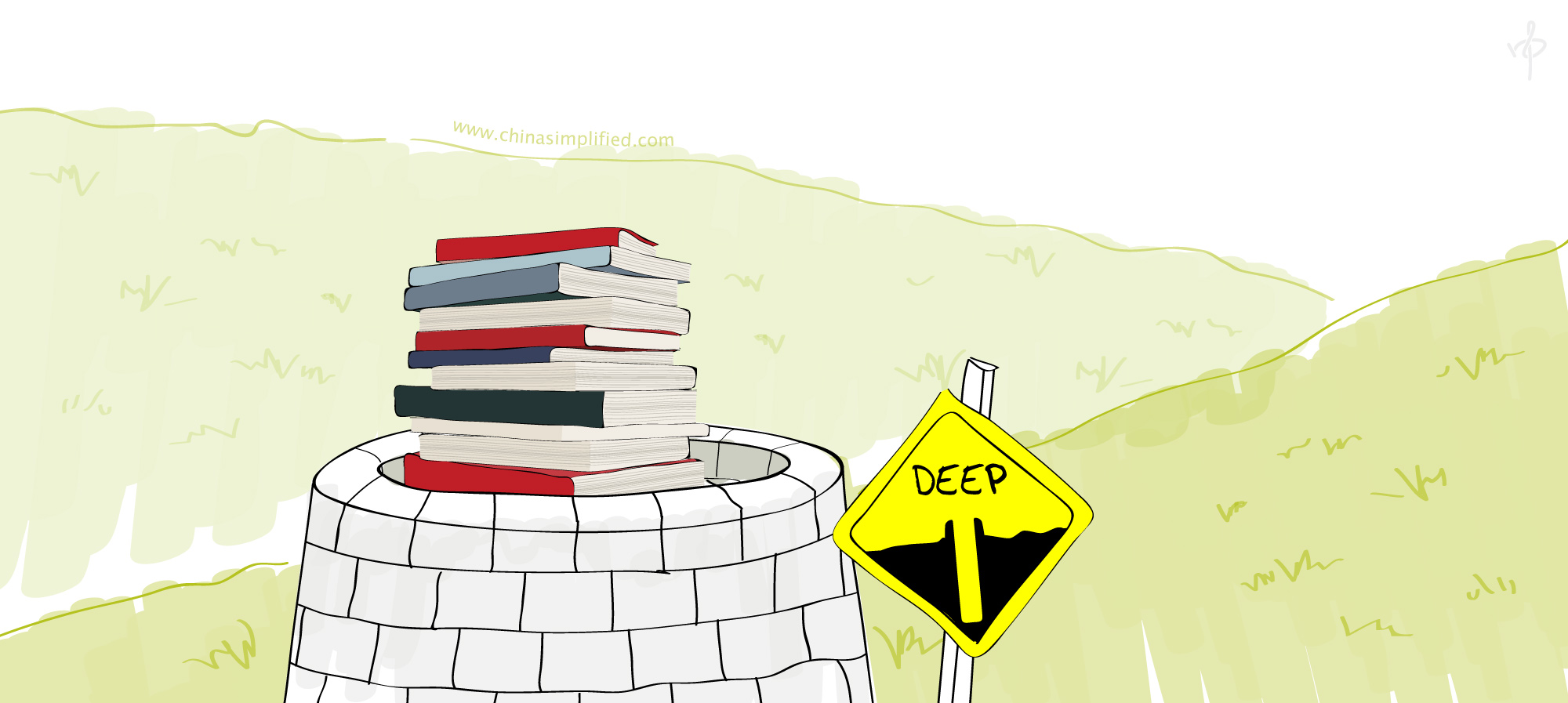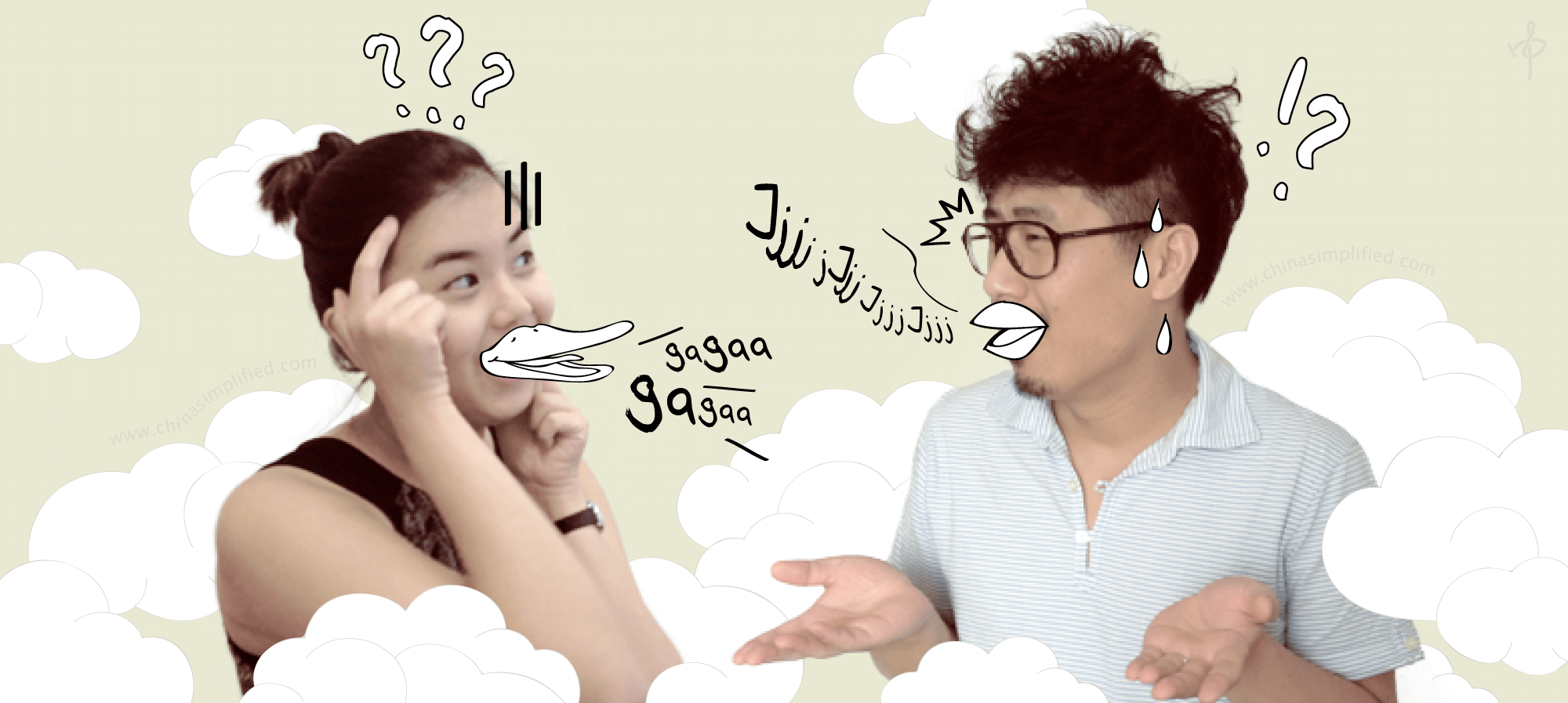Xiēhòuyǔ 歇后语 is a two-part enigmatic folk simile, that starts off with a basic statement and finishes with a twist. They are humorous and witty sayings from a variety of sources: Chinese mythologies, superstitions, religious and common beliefs, even everyday life.
The first recorded use of the term xiehouyu (literally: a saying with the latter part suspended) occurred in 898CE during the Tang Dynasty, as evidenced by Zheng Qing in the famous chronicle history book Old Tang Poems. The first part of a xiehouyu acts as a metaphor or primer for the latter part that carries the message. A pause separates the two parts, giving the listener time to guess the “answer.” You might think of it as a game of riddles!
Here are some examples:
井底看书 - 学问不浅
Jǐng dǐ kàn shū – xué wèn bù qiǎn
Reading a book at the bottom of a well — very deep knowledge (lit. knowledge not shallow)
Meaning: Wells are deep and books represent knowledge. Used to praise someone who is knowledgable.
叫花子打了碗 - 倾家荡产
Jiào huā zi dǎ le wǎn – qīng jiā dàng chǎn
A beggar breaks his bowl — bankrupted
Meaning: A beggar’s bowl is his only means of earning money, so he’s in trouble if it breaks. Used when someone loses everything he has.
猪八戒穿红袍 - 不伦不类
Zhū bā jiè chuān hóng páo – bù lún bú lèi
A pig wearing a red robe — he’s still a pig (lit. neither fish nor fowl)
Meaning: Even if Zhubajie (pig character in the story Journey to the West) wears a red robe, it will not make him a human. It suggests we should follow convention.
婊子送客 - 虚情假意
Biǎo zi sòng kè – xū qíng jiǎ yì
A hooker seeing off her guests — fake hearted
Meaning: This relationship is based on money and an impassioned goodbye is to ensure his future return. Used to describe a relationship in which a person pretends to be nice to another person in order to obtain some benefits.
八十老翁吹喇叭 - 有气无力
Bā shí lǎo wēng chuī lǎ bā – yǒu qì wú lì
An 80-year-old man playing the trumpet — so weakly (lit. breath but no power)
Meaning: An old man may have the will but not the energy for something. Used to describe someone who does not put any spirit or effort into a particular task.
吊死鬼瞪眼 - 死不瞑目
Diào sǐ guǐ dèng yǎn – sǐ bù míng mù
Hanged-ghosts stare at something — die with everlasting regret (lit. die with eyes open)
Meaning: A person who dies with his/her eyes open is said to have not died in peace, perhaps wronged or clinging to unfulfilled wishes.
警察蹲监狱 - 以身试法
Jǐng chá dūn jiān yù – yǐ shēn shì fǎ
A policeman in prision — defying the law (lit. personally testing the law)
Meaning: A policeman who ends up in prison shows that the law is fair.
Sometimes the second part of a xiehouyu is omitted altogether, much like these English sayings: a stitch in time (saves nine) and speak of the devil (and he will appear).
Any similar English sayings come to mind?
Can you come up with your own xiehouyu?
Share them with us in the comments section below!










我好学习多点歇后语